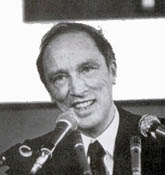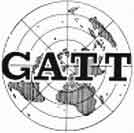Browse "Politics & Law"
-
Article
Right to Vote in Canada
The term franchise denotes the right to vote in elections for members of Parliament, provincial legislatures and municipal councils. The Canadian franchise dates from the mid-18th-century colonial period. At that time, restrictions effectively limited the right to vote to male property holders. Since then, voting qualifications and the categories of eligible voters have expanded according to jurisdiction. These changes reflect the evolution of Canada’s social values and constitutional requirements.
"https://d2ttikhf7xbzbs.cloudfront.net/media/media/bd7dcb30-05e5-4ba5-a9f7-9adea1ed9928.jpg" // resources/views/front/categories/view.blade.php
https://d2ttikhf7xbzbs.cloudfront.net/media/media/bd7dcb30-05e5-4ba5-a9f7-9adea1ed9928.jpg
-
Article
Fraser Institute
The Fraser Institute is a nonprofit group established in 1974 under federal charter with offices in Vancouver (headquarters) and Toronto. The institute, which has been noted for its conservative views, operates as a research and educational organization that supports free enterprise.
"https://development.thecanadianencyclopedia.ca/images/tce_placeholder.jpg?v=e9dca980c9bdb3aa11e832e7ea94f5d9" // resources/views/front/categories/view.blade.php
https://development.thecanadianencyclopedia.ca/images/tce_placeholder.jpg?v=e9dca980c9bdb3aa11e832e7ea94f5d9
-
"https://development.thecanadianencyclopedia.ca/images/tce_placeholder.jpg?v=e9dca980c9bdb3aa11e832e7ea94f5d9" // resources/views/front/categories/view.blade.php
https://development.thecanadianencyclopedia.ca/images/tce_placeholder.jpg?v=e9dca980c9bdb3aa11e832e7ea94f5d9
-
Article
Free Trade
A free trade area as defined by the General Agreement on Tariffs and Trade (GATT) is "a group of two or more customs territories in which duties and other restrictive regulations of commerce... are eliminated on substantially all the trade between the constituent territories in products originating in such territories."
"https://d2ttikhf7xbzbs.cloudfront.net/media/media/133a2d02-51cc-4318-b7c7-5aeb80b30cf3.png" // resources/views/front/categories/view.blade.php
https://d2ttikhf7xbzbs.cloudfront.net/media/media/133a2d02-51cc-4318-b7c7-5aeb80b30cf3.png
-
Article
Freedom of Information
During the 1960s and 1970s citizens, as users of government services, began to feel entitled to certain rights arising out of their relationship with government.
"https://development.thecanadianencyclopedia.ca/images/tce_placeholder.jpg?v=e9dca980c9bdb3aa11e832e7ea94f5d9" // resources/views/front/categories/view.blade.php
https://development.thecanadianencyclopedia.ca/images/tce_placeholder.jpg?v=e9dca980c9bdb3aa11e832e7ea94f5d9
-
Article
French Language Services Act (Nova Scotia)
The Congrès mondial acadien (Acadian World Congress) was held in summer 2004 in Nova Scotia to mark the four centuries of French presence on the territory. Afterwards, on 1 October 2004, the Progressive Conservative government under John Hamm introduced a legislative bill recognizing the Office of Acadian Affairs. The bill was subsequently embedded into the provincial Public Service Act. The Act Respecting the Office of Acadian Affairs and the Delivery of French-language Services by the Public Service was passed by the legislature on 14 October 2004 and received royal assent on 18 October that same year.
"https://d2ttikhf7xbzbs.cloudfront.net/media/AcadianFlag/dreamstime_xl_84910685.jpg" // resources/views/front/categories/view.blade.php
https://d2ttikhf7xbzbs.cloudfront.net/media/AcadianFlag/dreamstime_xl_84910685.jpg
-
Article
Front de libération du Québec (FLQ)
The Front de libération du Québec (FLQ) was a militant Quebec independence movement that used terrorism to try and achieve an independent and socialist Quebec. FLQ members — or felquistes — were responsible for more than 200 bombings and dozens of robberies between 1963 and 1970 that left six people dead. Their actions culminated in the kidnapping of British trade commissioner James Cross and the kidnapping and subsequent murder of Quebec cabinet minister Pierre Laporte, in what became known as the October Crisis.
"https://d2ttikhf7xbzbs.cloudfront.net/media/new_article_images/FLQ/EC_2012-07-30.b1_IMG_0003-V.2 (1).jpg" // resources/views/front/categories/view.blade.php
https://d2ttikhf7xbzbs.cloudfront.net/media/new_article_images/FLQ/EC_2012-07-30.b1_IMG_0003-V.2 (1).jpg.jpg)
-
Article
Fugitive Slave Act of 1850
The Fugitive Slave Act of 1850 was enacted by the United States Congress on 18 September 1850. It extended the reach of the institution of slavery into the free Northern states, stating that refugees from enslavement living there could be returned to enslavement in the South once captured. The Act led thousands of freedom-seekers to take refuge in Canada. It was repealed 28 June 1864.
"https://d2ttikhf7xbzbs.cloudfront.net/media/media/bb97a065-d5f8-4609-b40c-544f03d813b5.jpg" // resources/views/front/categories/view.blade.php
https://d2ttikhf7xbzbs.cloudfront.net/media/media/bb97a065-d5f8-4609-b40c-544f03d813b5.jpg
-
Article
Functionalism
FunctionalismFunctionalism is a concept of world order developed in the early 20th century by such writers as Leonard Woolf and David Mitrany, who argued that if nations joined in economic and social interdependence, and if national well-being depended upon the maintenance of peace, then war would be less likely. This theory influenced the founders of the UNITED NATIONS, with its specialized functional agencies and its organs for security and for economic and social questions. Canadians...
"https://development.thecanadianencyclopedia.ca/images/tce_placeholder.jpg?v=e9dca980c9bdb3aa11e832e7ea94f5d9" // resources/views/front/categories/view.blade.php
https://development.thecanadianencyclopedia.ca/images/tce_placeholder.jpg?v=e9dca980c9bdb3aa11e832e7ea94f5d9
-
Article
Canada and the G7 (Group of Seven)
The G7, or Group of Seven, is an international group comprising the governments of the world’s largest economies: Germany, France, Italy, Japan, the United Kingdom, the United States and Canada. It was founded as the G6 in 1975 and became the G7 with the addition of Canada in 1976. The Group is an informal bloc; it has no treaty or constitution and no permanent offices, staff or secretariat. The leaders of the member states meet at annual summits to discuss issues of mutual concern and to coordinate actions to address them. The meeting location and the organization’s presidency rotates among the members. The European Union is also a non-enumerated member, though it never assumes the rotating presidency.
"https://d2ttikhf7xbzbs.cloudfront.net/media/new_article_images/G7/G7_summit_at_Shimakan.jpg" // resources/views/front/categories/view.blade.php
https://d2ttikhf7xbzbs.cloudfront.net/media/new_article_images/G7/G7_summit_at_Shimakan.jpg
-
Editorial
Canada and the G-8
The following article is an editorial written by The Canadian Encyclopedia staff. Editorials are not usually updated. Eight statesmen, scores of aides, hundreds of press, and thousands of security personnel will all descend on Kananaskis, Alberta, in late June 2002. For the fourth time since 1976, but the first time in Western Canada, a Canadian prime minister will be hosting the G-8 leaders summit.
"https://d2ttikhf7xbzbs.cloudfront.net/media/media/6a141c7c-00aa-499d-ba22-e1f9f0d9d0d1.jpg" // resources/views/front/categories/view.blade.php
https://d2ttikhf7xbzbs.cloudfront.net/media/media/6a141c7c-00aa-499d-ba22-e1f9f0d9d0d1.jpg
-
Article
Gallicanism
Gallicanism is a doctrine which originated in France in the Middle Ages and sought to regulate the relationship between the Catholic Church and the state. It underlined the independence of the French Church in terms of papal authority, but also its subordination to the royal power. It thus confirmed the supremacy of the state in public life, unlike Ultramontanism, which supported the submission of the Churches and kingdoms to the papacy.
"https://development.thecanadianencyclopedia.ca/images/tce_placeholder.jpg?v=e9dca980c9bdb3aa11e832e7ea94f5d9" // resources/views/front/categories/view.blade.php
https://development.thecanadianencyclopedia.ca/images/tce_placeholder.jpg?v=e9dca980c9bdb3aa11e832e7ea94f5d9
-
Macleans
Gay Rights Bill Passes
This article was originally published in Maclean’s magazine on May 13, 1996. Partner content is not updated. One year ago this week, Chris Phibbs and Chris Higgins, lesbian partners for seven years, hosted a celebration at their Toronto home. "There were flowers, telegrams, balloons," recalls Phibbs. "It was as much fun as a family has ever had.
"https://development.thecanadianencyclopedia.ca/images/tce_placeholder.jpg?v=e9dca980c9bdb3aa11e832e7ea94f5d9" // resources/views/front/categories/view.blade.php
https://development.thecanadianencyclopedia.ca/images/tce_placeholder.jpg?v=e9dca980c9bdb3aa11e832e7ea94f5d9
-
Macleans
Gay Rights Upheld in Alberta
This article was originally published in Maclean’s magazine on April 13, 1998. Partner content is not updated. Delwin Vriend never set out to be a gay-rights poster boy. Last week, the 32-year-old computer technologist at the University of Alberta in Edmonton sounded drained by his seven-year battle with the Alberta government over its unwillingness to provide equal rights to gays and lesbians.
"https://development.thecanadianencyclopedia.ca/images/tce_placeholder.jpg?v=e9dca980c9bdb3aa11e832e7ea94f5d9" // resources/views/front/categories/view.blade.php
https://development.thecanadianencyclopedia.ca/images/tce_placeholder.jpg?v=e9dca980c9bdb3aa11e832e7ea94f5d9
-
Article
General Agreement on Tariffs and Trade (GATT)
The General Agreement on Tariffs and Trade (GATT) was an international trade agreement. It was signed by 23 nations, including Canada, in 1947 and came into effect on 1 January 1948. It was refined over eight rounds of negotiations, which led to the creation of the World Trade Organization (WTO). It replaced the GATT on 1 January 1995. The GATT was focused on trade in goods. It aimed to liberalize trade by reducing tariffs and removing quotas among member countries. Each member of the GATT was expected to open its markets equally to other member nations, removing trade discrimination. The agreements negotiated through GATT reduced average tariffs on industrial goods from 40 per cent (1947) to less than five per cent (1993). It was an early step towards economic globalization.
"https://d2ttikhf7xbzbs.cloudfront.net/media/media/397c53e8-7226-4f88-8181-2fc0d8fa3680.jpg" // resources/views/front/categories/view.blade.php
https://d2ttikhf7xbzbs.cloudfront.net/media/media/397c53e8-7226-4f88-8181-2fc0d8fa3680.jpg
